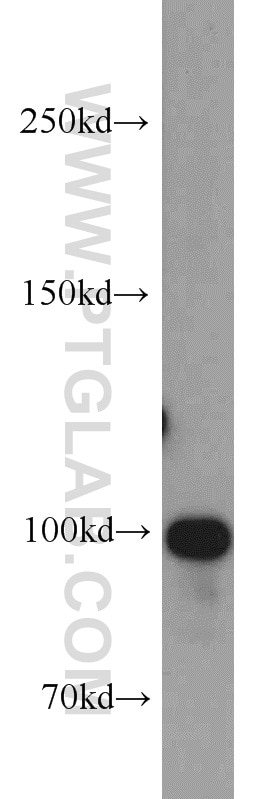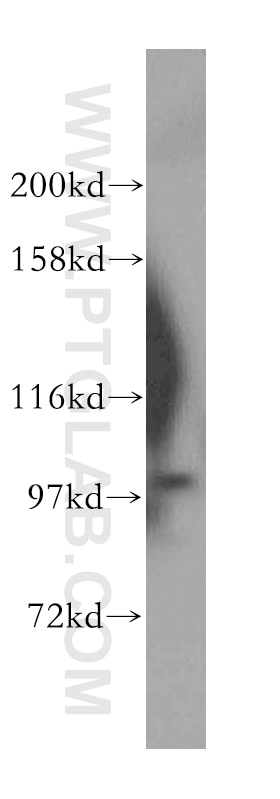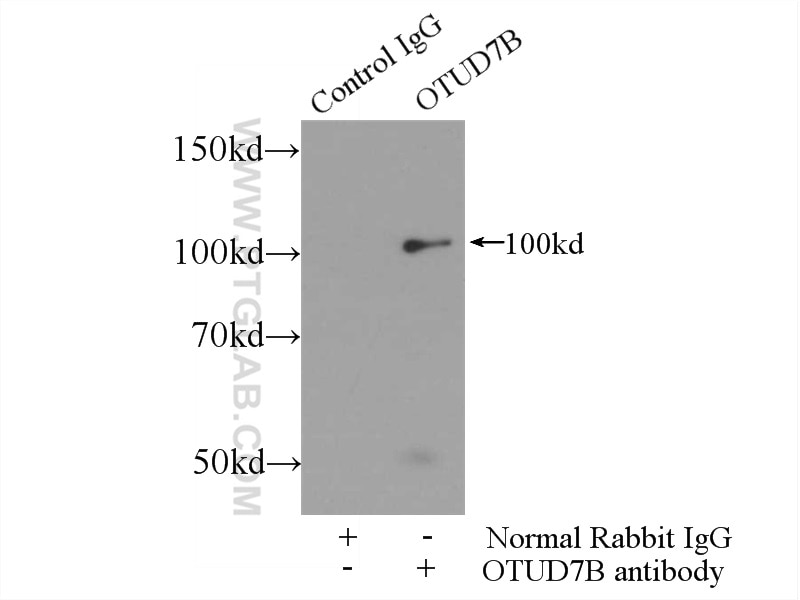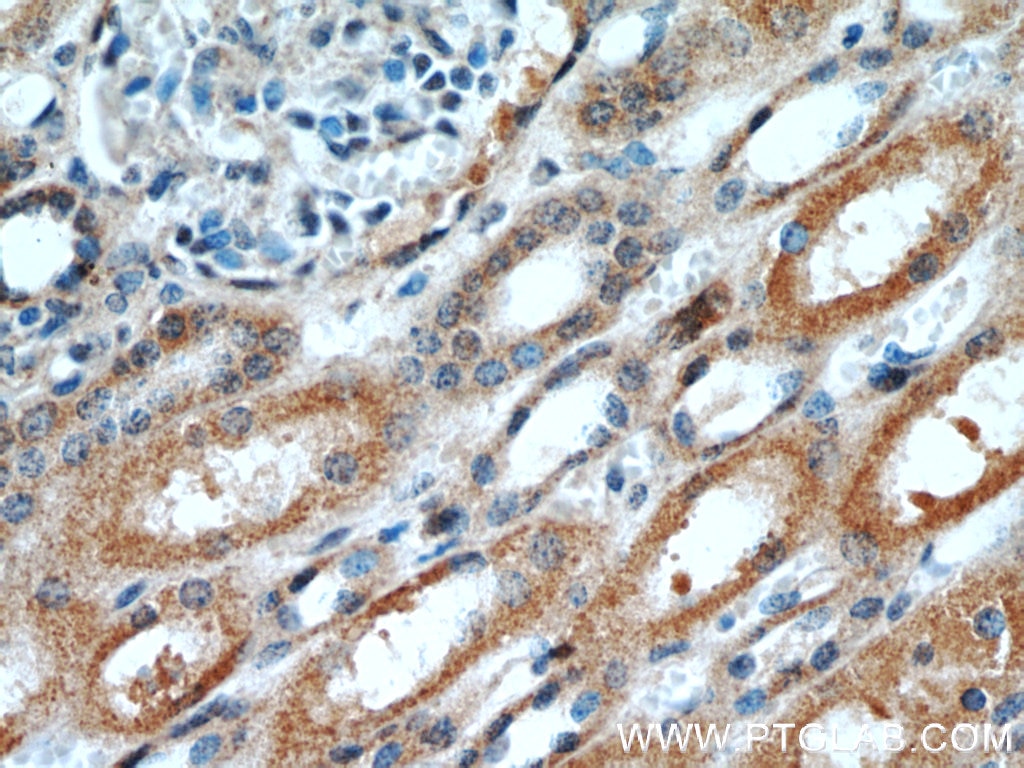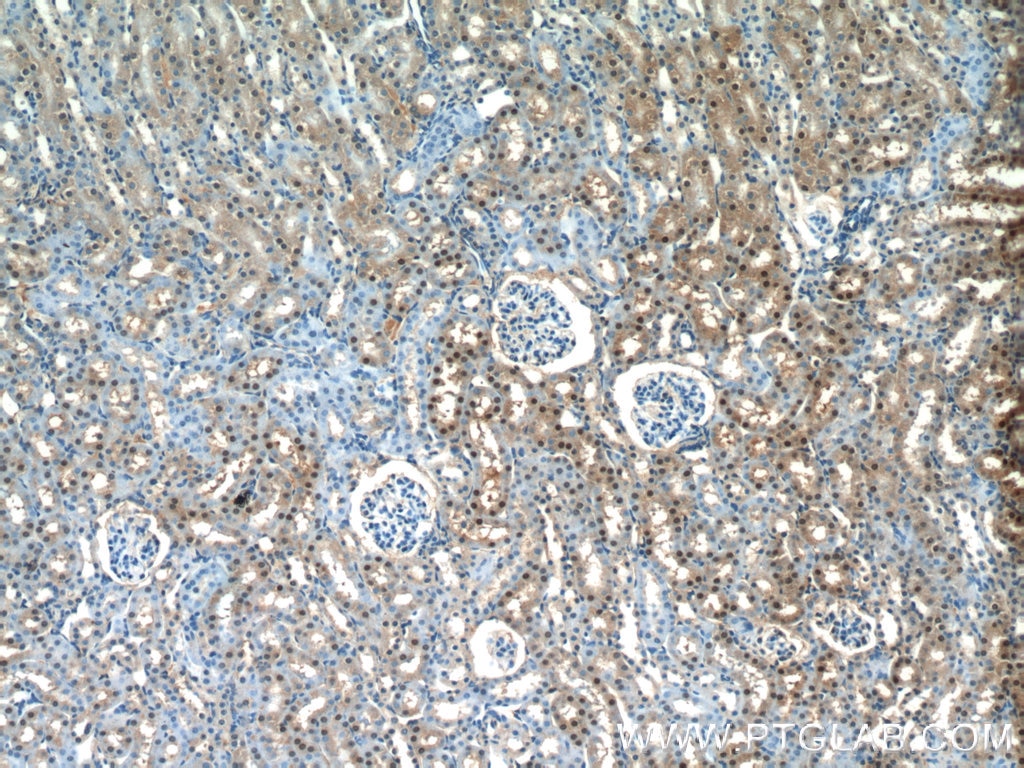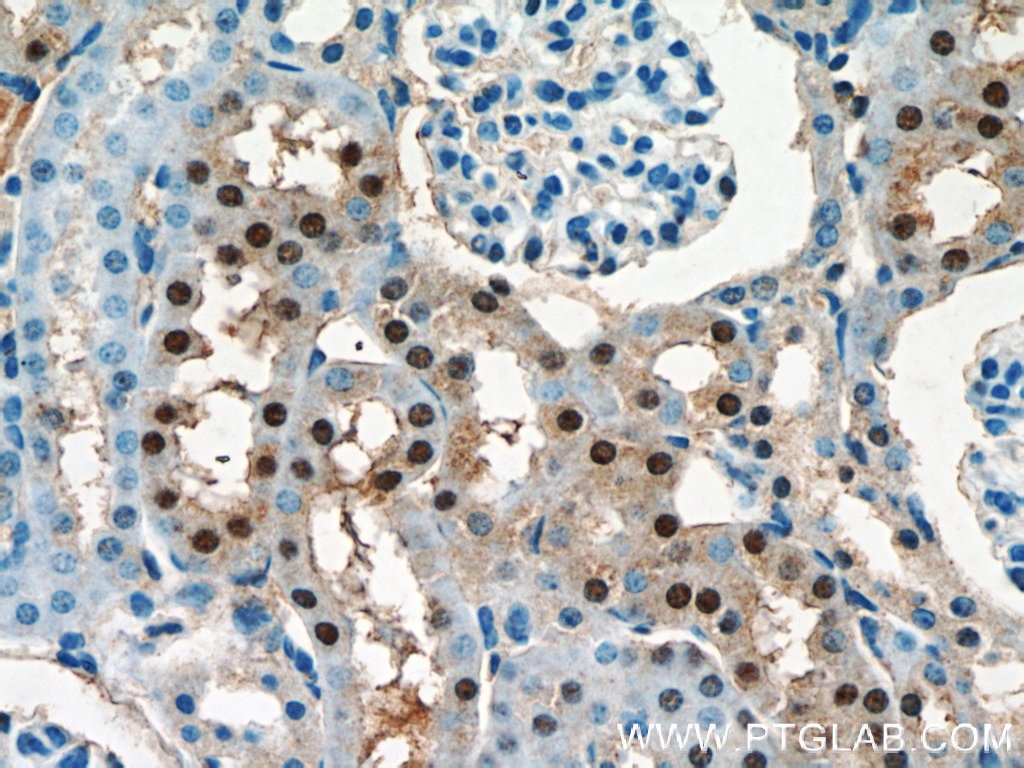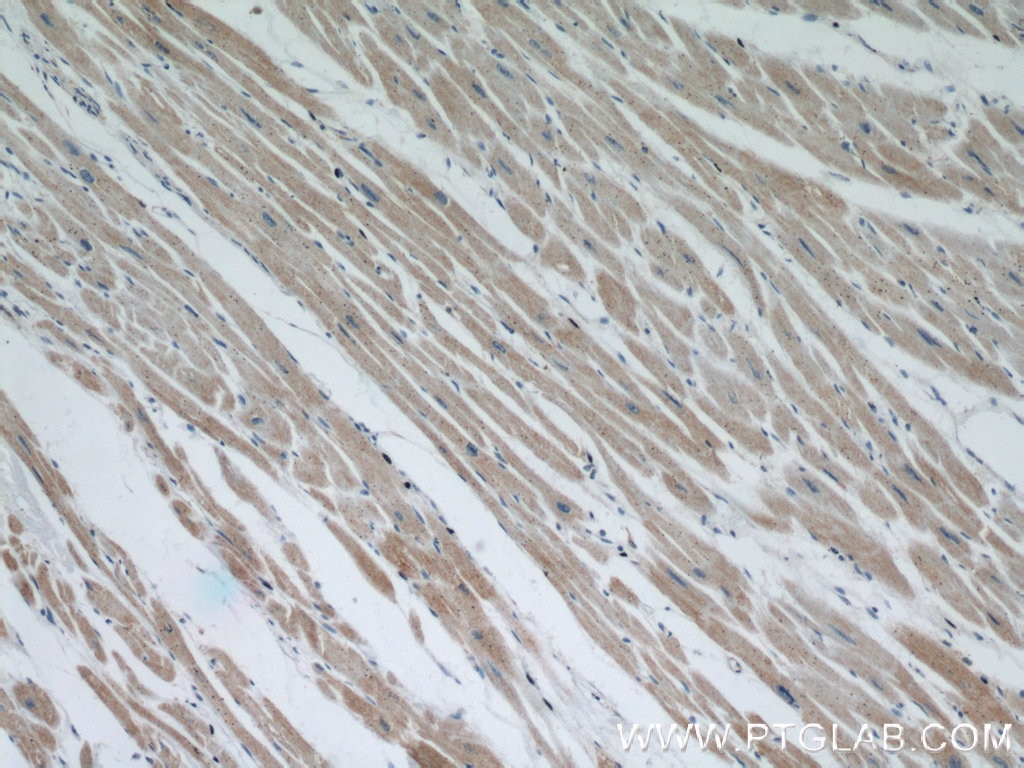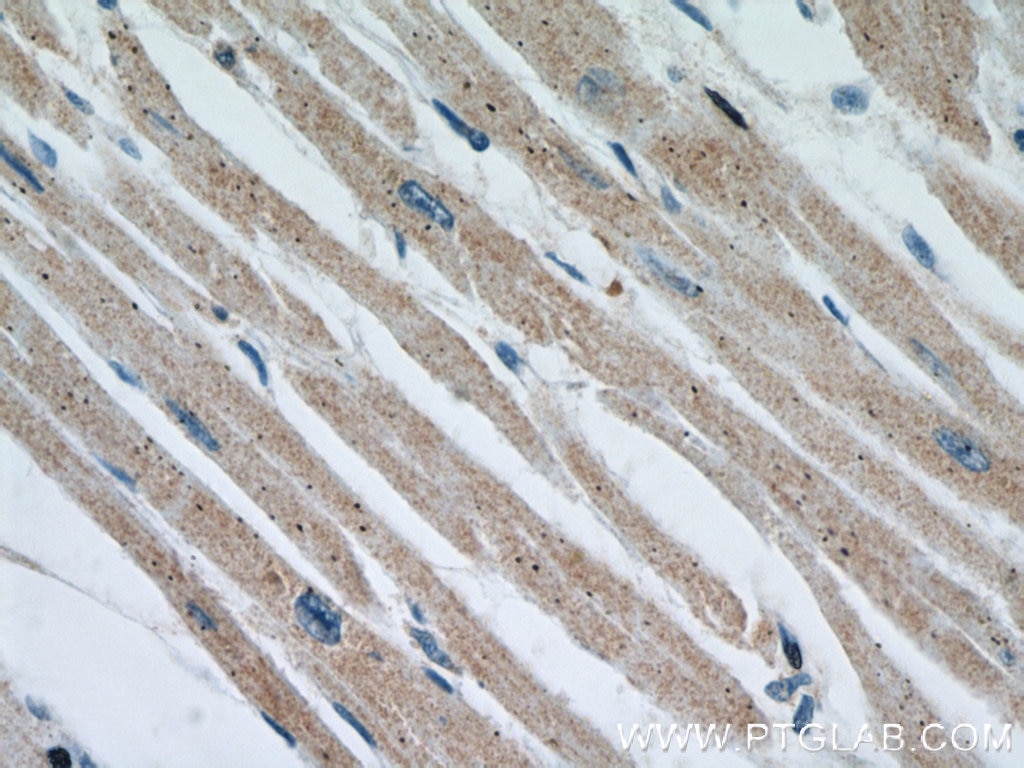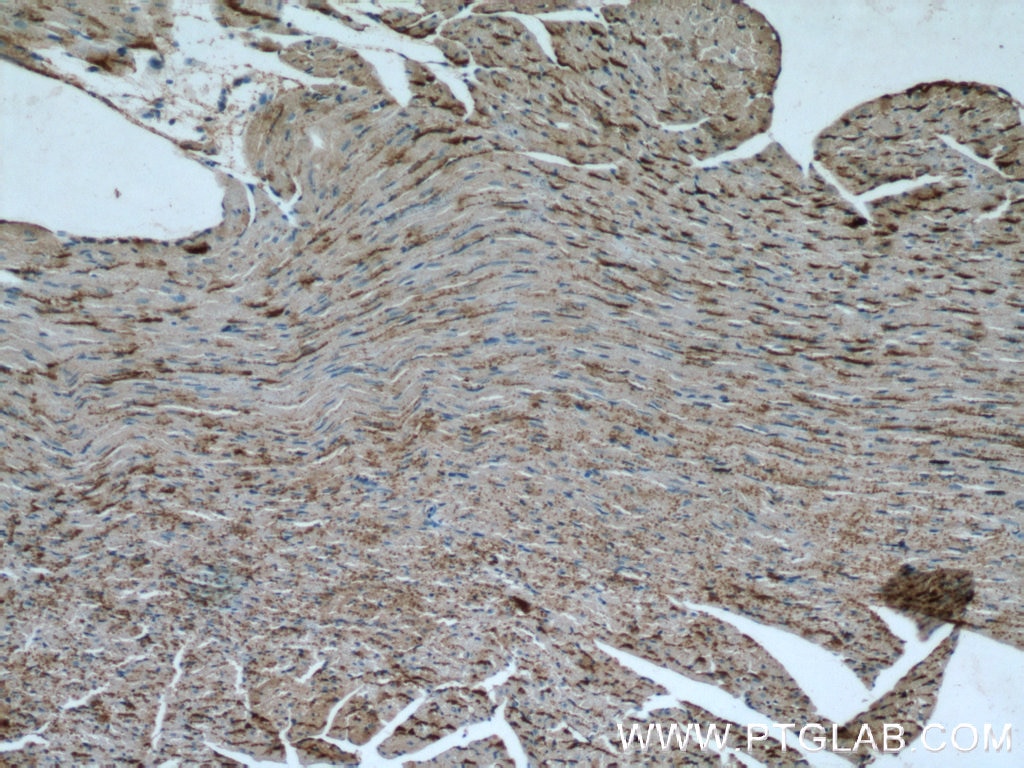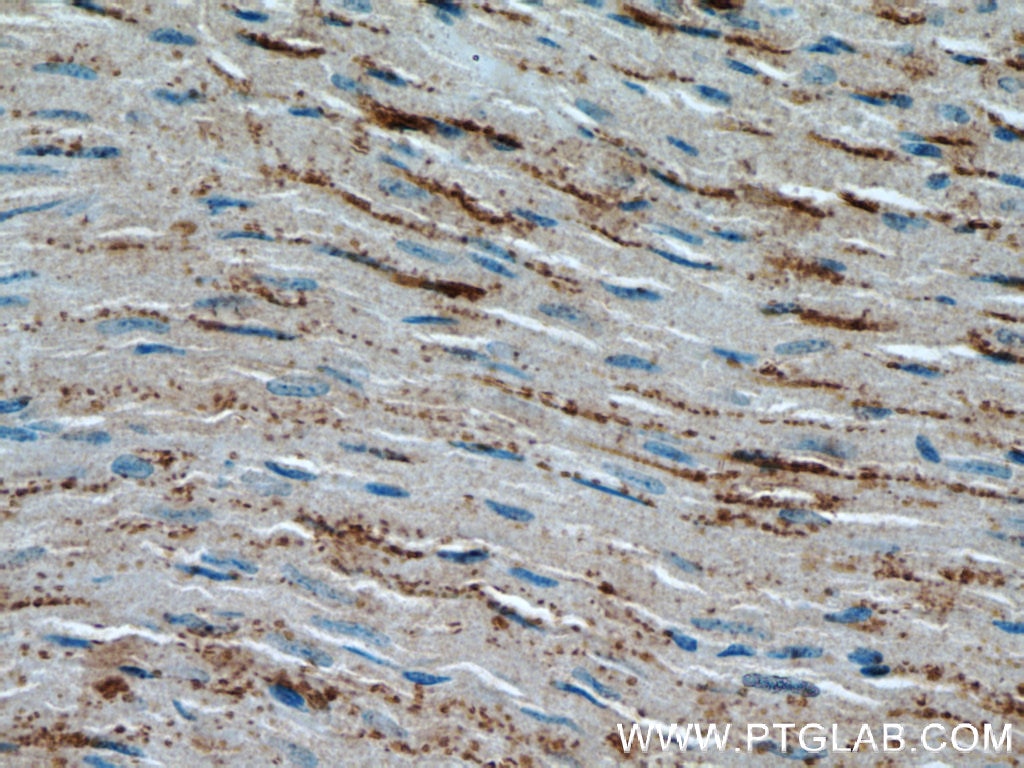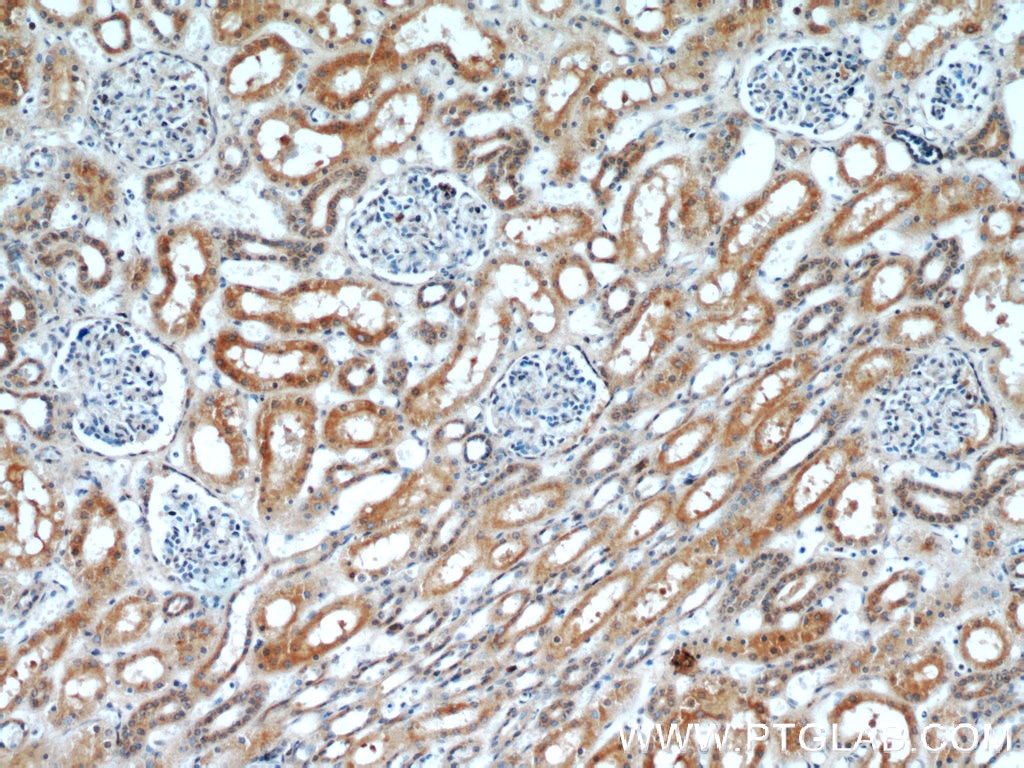Tested Applications
| Positive WB detected in | Jurkat cells |
| Positive IP detected in | Jurkat cells |
| Positive IHC detected in | human kidney tissue, human heart tissue, mouse kidney tissue, mouse heart tissue Note: suggested antigen retrieval with TE buffer pH 9.0; (*) Alternatively, antigen retrieval may be performed with citrate buffer pH 6.0 |
Recommended dilution
| Application | Dilution |
|---|---|
| Western Blot (WB) | WB : 1:500-1:1000 |
| Immunoprecipitation (IP) | IP : 0.5-4.0 ug for 1.0-3.0 mg of total protein lysate |
| Immunohistochemistry (IHC) | IHC : 1:50-1:500 |
| It is recommended that this reagent should be titrated in each testing system to obtain optimal results. | |
| Sample-dependent, Check data in validation data gallery. | |
Published Applications
| KD/KO | See 14 publications below |
| WB | See 21 publications below |
| IHC | See 6 publications below |
| IF | See 8 publications below |
| IP | See 2 publications below |
| CoIP | See 2 publications below |
Product Information
16605-1-AP targets OTUD7B in WB, IHC, IF, IP, CoIP, ELISA applications and shows reactivity with human, mouse, rat samples.
| Tested Reactivity | human, mouse, rat |
| Cited Reactivity | human, mouse, rat |
| Host / Isotype | Rabbit / IgG |
| Class | Polyclonal |
| Type | Antibody |
| Immunogen |
CatNo: Ag9788 Product name: Recombinant human OTUD7B protein Source: e coli.-derived, PGEX-4T Tag: GST Domain: 1-355 aa of BC020622 Sequence: MTLDMDAVLSDFVRSTGAEPGLARDLLEGKNWDVNAALSDFEQLRQVHAGNLPPSFSEGSGGSRTPEKGFSDREPTRPPRPILQRQDDIVQEKRLSRGISHASSSIVSLARSHVSSNGGGGGSNEHPLEMPICAFQLPDLTVYNEDFRSFIERDLIEQSMLVALEQAGRLNWWVSVDPTSQRLLPLATTGDGNCLLHAASLGMWGFHDRDLMLRKALYALMEKGVEKEALKRRWRWQQTQQNEESGLVYTEDEWQKEWNELIKLASSEPRMHLGTNGANCGGVESSEEPVYESLEEFHVFVLAHVLRRPIVVVADTMLRDSGGEAFAPIPFGGIYLPLEVPASQCHRSPLVLAYD Predict reactive species |
| Full Name | OTU domain containing 7B |
| Calculated Molecular Weight | 427aa,48 kDa; 843aa,93 kDa |
| Observed Molecular Weight | 100 kDa |
| GenBank Accession Number | BC020622 |
| Gene Symbol | OTUD7B |
| Gene ID (NCBI) | 56957 |
| RRID | AB_2157149 |
| Conjugate | Unconjugated |
| Form | Liquid |
| Purification Method | Antigen affinity purification |
| UNIPROT ID | Q6GQQ9 |
| Storage Buffer | PBS with 0.02% sodium azide and 50% glycerol, pH 7.3. |
| Storage Conditions | Store at -20°C. Stable for one year after shipment. Aliquoting is unnecessary for -20oC storage. 20ul sizes contain 0.1% BSA. |
Background Information
OUTD7B is a member of the A20 family of the deubiquitinating cysteine proteases, which has deubiquitinating activity that is directed towards 'Lys-48' or 'Lys-63'-linked polyubiquitin chains. It plays a key role in the negative feedback regulation of NF-κB signaling in response to multiple stimuli and has been described as central gatekeeper in inflammation and immunity. The calculated molecular weight of OTUD7B is 93 kDa, but the modified OTUD7B is about 100 kDa.
Protocols
| Product Specific Protocols | |
|---|---|
| IHC protocol for OTUD7B antibody 16605-1-AP | Download protocol |
| IP protocol for OTUD7B antibody 16605-1-AP | Download protocol |
| WB protocol for OTUD7B antibody 16605-1-AP | Download protocol |
| Standard Protocols | |
|---|---|
| Click here to view our Standard Protocols |
Publications
| Species | Application | Title |
|---|---|---|
Nature OTUD7B controls non-canonical NF-κB activation through deubiquitination of TRAF3.
| ||
Nat Commun Dynamic ubiquitylation of Sox2 regulates proteostasis and governs neural progenitor cell differentiation.
| ||
J Exp Med Otud7b facilitates T cell activation and inflammatory responses by regulating Zap70 ubiquitination.
| ||
Circ Res Cezanne regulates inflammatory responses to hypoxia in endothelial cells by targeting TRAF6 for deubiquitination. | ||
Theranostics Salvia miltiorrhiza-derived miRNAs suppress vascular remodeling through regulating OTUD7B/KLF4/NMHC IIA axis. | ||
Arterioscler Thromb Vasc Biol Mechanical Activation of Hypoxia-Inducible Factor 1α Drives Endothelial Dysfunction at Atheroprone Sites. |
Reviews
The reviews below have been submitted by verified Proteintech customers who received an incentive for providing their feedback.
FH Francesca (Verified Customer) (06-02-2019) | Good and specific antibody for Western blot.
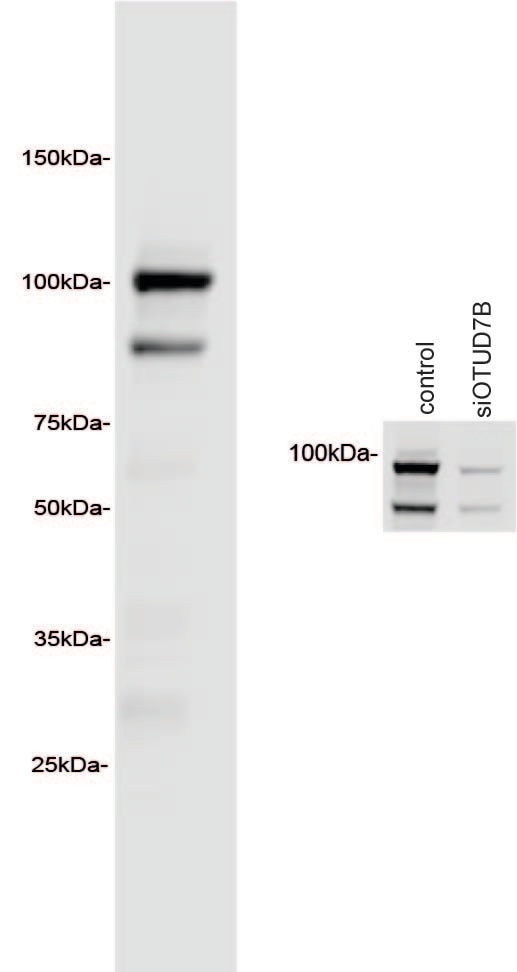 |

